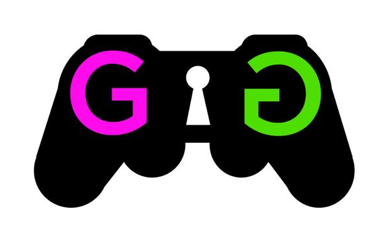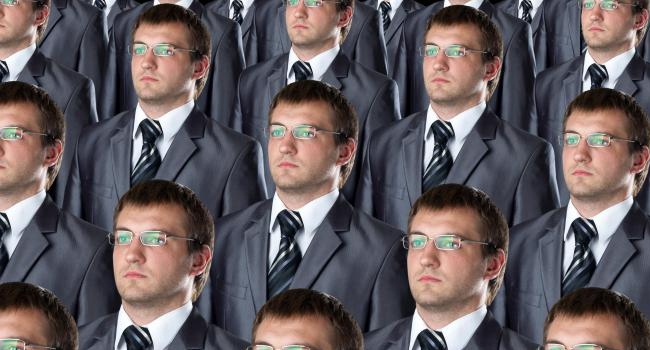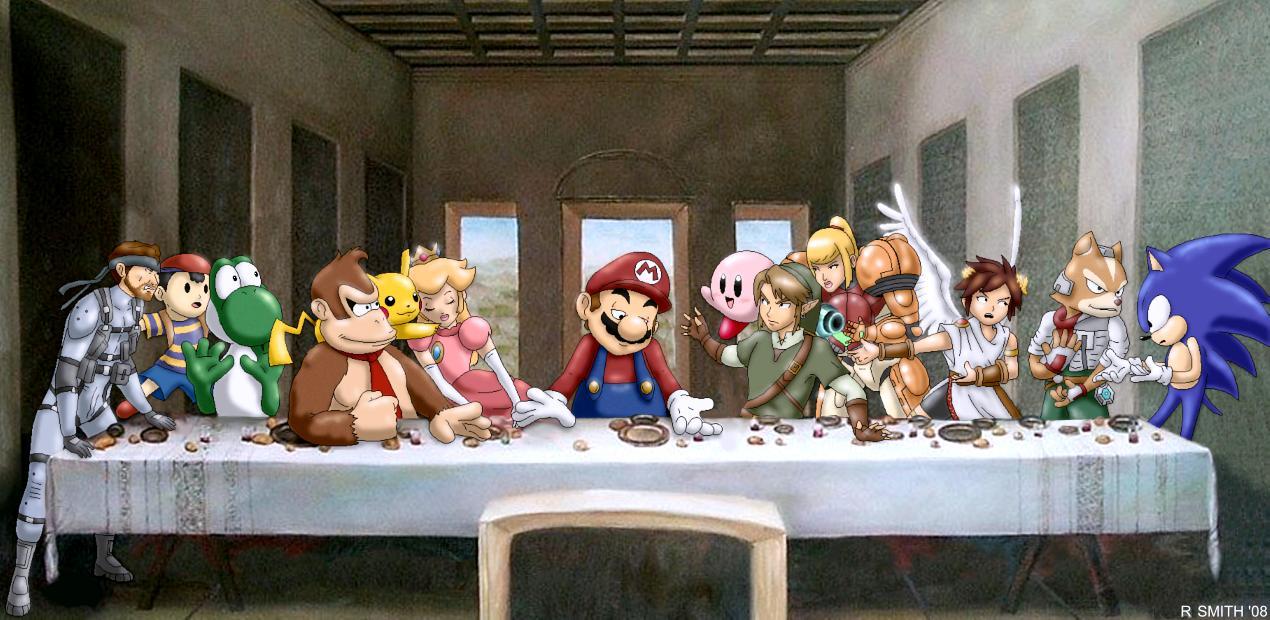When it comes to video game villains, I have always had a soft spot. Growing up, it seemed the good guy was always just one tragedy away from becoming the villain. They had flaws, were often deformed in some way, and were undeniably human. But sometimes, the villain goes too far. I buy the argument that the bad guys are supposed to be bad. But, I worry that we have drawn some implicit lines in the sand about what is too far, and we should not let those lines go interrogated. I have gone through some of the more disturbing video game villains to try and figure out what my threshold for badness is. It would be great if readers could post any villainous behavior that crossed the line for you as well.
The Joker (Arkham City)
Th is is the villain that prompted this post. The Joker, in Arkham City, tells his cronies that the first one to catch Batman will get to go on a date with Harley Quinn, and then he quips “I might even tell her….nah that would take all of the fun out of it” (See Sam B’s Post for more on this). Sure, I watch movies all the time where the villain does far worse than suggest letting his friends rape his girl. The reason I find the Joker’s behavior so disturbing is that he has become a kind of cultural icon that kids emulate. Kids dress up as the joker for Halloween, his image makes cameos often in mainstream television (see, The Office, for example), and he is very humanized in both the comics and the movies. He was #1 on Wizard’s list of the greatest video game villains and #2 on IGN’s Top 100 Comic Book Villains. At the risk of sounding like a sociopath, I always kind of liked his indiscriminate hatred. Originally, he was a maniac. 100% psychopath. Eventually, he was more of a Loki-style character, causing mischief and mayhem. While there is no definitive backstory, it is most widely accepted that The Joker’s pregnant wife’s death was what started his psychosis (a trope we see over and over in popular movies). He is a popular, and I would argue loved, villain. Thus his behavior matters. His characterization tells us that he is first and foremost Batman’s enemy. All he cares about is the demise of Batman. I can live with that. He has killed many people, and done horrible deeds, in the pursuit of his obsession. But for me, it is unsettling for the Joker to let his cronies rape his girlfriend. It serves no purpose in the narrative, and it is not something the audience can ever claim vengeance for. Batman will never destroy the Joker in the name of Harley Quinn. She will never have any retribution.
is is the villain that prompted this post. The Joker, in Arkham City, tells his cronies that the first one to catch Batman will get to go on a date with Harley Quinn, and then he quips “I might even tell her….nah that would take all of the fun out of it” (See Sam B’s Post for more on this). Sure, I watch movies all the time where the villain does far worse than suggest letting his friends rape his girl. The reason I find the Joker’s behavior so disturbing is that he has become a kind of cultural icon that kids emulate. Kids dress up as the joker for Halloween, his image makes cameos often in mainstream television (see, The Office, for example), and he is very humanized in both the comics and the movies. He was #1 on Wizard’s list of the greatest video game villains and #2 on IGN’s Top 100 Comic Book Villains. At the risk of sounding like a sociopath, I always kind of liked his indiscriminate hatred. Originally, he was a maniac. 100% psychopath. Eventually, he was more of a Loki-style character, causing mischief and mayhem. While there is no definitive backstory, it is most widely accepted that The Joker’s pregnant wife’s death was what started his psychosis (a trope we see over and over in popular movies). He is a popular, and I would argue loved, villain. Thus his behavior matters. His characterization tells us that he is first and foremost Batman’s enemy. All he cares about is the demise of Batman. I can live with that. He has killed many people, and done horrible deeds, in the pursuit of his obsession. But for me, it is unsettling for the Joker to let his cronies rape his girlfriend. It serves no purpose in the narrative, and it is not something the audience can ever claim vengeance for. Batman will never destroy the Joker in the name of Harley Quinn. She will never have any retribution.
The Origami Killer (Heavy Rain) **Spoiler Alert**
I’m sure many people find that the line for them is crossed whenever a villain involves a kid. Though, we do seem to have some sort of fascination with seeing the most horrible things possible (as the fact that Law and Order: SVU is on its 13th season and boasts over 250 episodes can attest to). It isn’t the kidnapping that bothers me in this game, though. One of the endings, “Unpunished,” is what bothers me in the game. As many now know, the origami killer is Scott Shelby, the private investigator on the case. In the “Unpunished” ending, Shelby walks away down the street, having gotten away with all his crimes.
What disturbs me about this ending is not only the lack of justice, but just how realistic this scenario is. 800,000 children go missing each year, though it may seem like a lot less because we usually only hear about ones involving affluent families. Now, I’m not making a blanket statement that video games shouldn’t depict realistic horrors. What I’m saying is that, for me, when I am so into a storyline that I don’t sleep for 2 days while I finish the game to save the kid, I want some freaking justice at the end. I don’t play games to feel like crap; I play them for entertainment. So for me, this ending made the villain too bad for my liking.
Again, I’m not saying we should take the “evil” out of evil villain. But I think it deserves some interrogation to see what you feel is too far. I have a friend who won’t read the Girl With the Dragon Tattoo books because she knows rape and forced sodomy is too far for her. For myself, peripheral sexism (the kind that isn’t part of the story, but is just taken as normal) is what drives me the most crazy. I know Sam draws the line at anything involving kids. But I think it stands to reason that some behavior is just too bad.





6 thoughts on “How Bad is Too Bad?: Video Game Villains”
Now I haven’t PLAYED Arkham City so I may be speaking way out of turn here. But when the Joker said he would let a crony go on a date with Quin, I am not sure that translates immediately to rape. From what I know of the Joker from the animated series, he was fiercely possessive of Quin, modeling an abusive relationship.
It may just be that: a date. This is what makes the Joker such an interesting character as he shifts from playfulness to menace. His cronies likely understand what the date implies, and if they cross the Joker’s invisible line, they know he would cut their heads off.
Again I could be crazy wrong here, but from what I know of the character, he would straddle that line and make the joke. His cronies would understand not to go to far with Quin.
Fair enough David. It is possible he was making a joke about an actual date. In fact, if this was a comic, I could see the next frame being something like Quinn sitting with a crony, an annoyed look on her face. In the twisted atmosphere of this game though, it really seems to me like he is talking about something far more than a date. In fact, a joke about an actual date would feel a little out of place. But, that’s my take. Maybe others who have played have a different opinion.
Indiscriminate murder? Ok. Rape his girlfriend? Not Ok?
I have to ask for some clarification here especially since many of the murdered are innocent civillians going about their lives with no obvious moral or ethical connection to the Joker. Many victims are often Policemen, EMTs, or Fireman who have no obvious moral flaws, or faults. They are average people going about their daily lives. Since they are nobodies do they not personify themselves as human, and as a consequence of this do rate as important on your moral scale as Harley Quinn who openly supports his murder, mayhem, and is represented in the comics as just as dangerously violent as the Joker himself?
I know rape is no joking matter, and this is not an attempt at making light of rape. It is a very serious issue, and one with fraught with exactly the type of danger you mention in your post. The actions of the Joker have real consequences in the real world.
Also, how does providing a group of thuggish men incentive to complete a task he desperately wants completed AT ALL COSTS serve no purpose in the narrative (you state “All he cares about is the demise of Batman”)? It’s a very grotesque incentive, but it does seem to serve purpose in the narrative. The Joker has no moral or ethical qualms. This is all a game to him, and he is constantly upping the ante. That is what makes him interesting as a character.
Why does the threat of rape raise your hackles more than terrorism (especially in a post 9/11 world) or the straight up murder of innocent civillians? What I am asking for is a bit more information about your moral compass, and the criteria you use rate “badness” or “evil.” How do you assess evil, and how do you use this criteria to rate the level of offenses? Where do you draw the line between acceptable and unacceptable? What makes rape worse than terrorism or murder in your book?
NOTE: I am not arguing that rape does not matter or is less offensive although I know that is most likely EXACTLY what it sounds like I am implying. I am just interested in hearing more about what you consider evil, and how you navigate your own moral compass.
BTW: I think this post is awesome and I can’t write more if needed to clarify my own position.
These are some very thought-provoking questions Terry. I have been sitting here all morning mulling them over. I don’t have explicit answers, but I have a few thoughts that might add to the conversation.
1. I think you are totally right that part of the reason the Quinn part is disturbing is because she is a character we know with a full back story. In games (and I hope no one thinks I’m advocating for this here, just trying to call it like I see it), most of the violence is committed against red shirts (aka. faceless, unknown, disposable). When you kill someone in Call of Duty, that avatar has no connection to you, and you fully recognize that the person behind the avatar will be getting a new body shortly. If anything, games like COD subvert the question of death because bodily death (in most of the games) actually have little to no consequence. So you aren’t killing another player in the sense that they are done with the game, but in the sense that they have to face a temporary setback. So, yes, it is different when Quinn gets threatened, just like it was more heartbreaking when Tasha Yar died, even though an unnamed ensign dies in about half of the Star Trek episodes.
2. I am not sure we are supposed to see Harley Quinn as *as* dangerous or evil as the Joker (note: my biggest comic book friend says that she is absolutely as evil as the Joker in the DC canon; but two other comic book lovers I talked to said she is absolutely a sympathetic character who is not evil, but under the Joker’s control… so if you fall into the former category, you will not agree with this point. Which is totally fine). She has been portrayed as being systematically portrayed as emotionally manipulated by the joker. It almost is like a type of Stockholm syndrome. Plus, and I know you didn’t mean this but I feel like I need to say it, being evil doesn’t mean it’s ok for you to be raped.
3. Do any of us really know why some things seem more offensive than others? I try to judge the disturbingness of these games by my gut reaction. And then I try to articulate why I had a visceral reaction to whatever it was. I think in some circumstances I would react more strongly to a fireman being killed, or to terrorism. So it’s contextually based. In the Batman series (though admittedly, this is my own perspective not shared by many many people who know way more than I do), I feel bad for Quinn because she seems manipulated and abused. That is one reason this trips my trigger. Abusing someone who you have power over is something that utterly disturbs me (perhaps because I’m a teacher? Or maybe because I worked in a home for mentally handicapped adults, so you can really see just how vulnerable people can be). So whatever that says about my moral compass, so be it.
4. I don’t think you’re saying rape is ok. I would hope we could have conversations about this thoughtfully and respectfully. Thus, I would not accuse you of advocating for rape, because that is obviously not what you’re trying to do.
Alright, Peterman, BRING IT ON.
Also, a friend of mine (who thinks Harley is just as evil if not more evil than Batman) made a great point. He said the first reaction to the Joker when he says that is supposed to be, “wtf? did the Joker just offer her as a sex toy?” and the second reaction is supposed to be, “no, the Joker just sent that dude to his death.”
So, a compelling perspective.
You touched on some themes I wanted to bring up in my post. I was totally thinking about identification the way you describe in post number 1. I was thinking in terms of fantasy theme criticism because your original post seemed to set you up as a sanctioning agent in an endorsement of a rhetorical vision. As the sanctioning agent you were legitimizing a moralistic framework, and as I began to share and extend fantasy explanations of The Joker’s and Harley’s actions I had trouble building up a combined dramatistic explanation of the reality you described (my own interpretation did not line up with yours so I could not share in your identification). We identified with that scene in different ways, and thus sanctioned the dramatic actions in different ways. This is not a bad thing because I think arriving at different interpretations, and working through them dialectically is why I became a scholar. I like to read some cool shit, talk about it with cool people, and compare disparate perspectives to triangulate my crazy ass readings in a larger context or scene.
In my original reply, I almost added a few sentences about Kenneth Burke, and consubstantiality to see if that was part of the reason you came to the conclusion about the dramatic action that you did (you identified with Harley on a certain level above normal characters for whatever reason), but I have not participated in this forum and did not want to sound like a Johnny come lately know it all. I could tell this was something that reverberated with you on a different level, that there was a deeper level of identification going on here, but I could not tell from the post what it was, exactly.
You asked, “Do any of us really know why some things seem more offensive than others? I try to judge the disturbingness of these games by my gut reaction. And then I try to articulate why I had a visceral reaction to whatever it was.” I think this is one of the more important points you raised. People often ignore that second step. We tend to go with our gut reaction, and forgo that attempt to articulate our feelings into some sort of moral reasoning. For example, If one thinks murder is wrong, or tries to rank it on a scale comparatively to rape or some equally heinous act it’s probably not because you read Aristotle and have some deeper understanding of rhetoric, the community, or moral values. We probably think it’s wrong because we were brought up to value human life and we believe that to deny someone of life is morally wrong. It’s mostly an argument based on values. Much of what we believe, or the issues we feel strongest about, are based on our values. The danger is that values are like B.O.—you never smell your own. We don’t think more critically about why we feel how we feel.
I think that is what grabbed me about your post: you were clearly engaged in some larger investigation of your reaction, and I wanted to hear more. I think it is important that we develop a logic of good reasons. It’s important to think about the steps we undertake to arrive at the conclusions we draw even if they are arguments from value like the one you created. Rhetoric has force and consequence. Your rhetoric has a power of its own similar to the iconography of the joker you mentioned in your post. It may not yet be as widely dispersed but it is out there in the ether for people to consume. All arguments shape the structure of reality. I am droning on here, but I was just interested in how you ranked your values. I think it is important to have good reasons that support values.
I have thought a lot about last quote in the blog section about the act of rape as something that “the audience can ever claim vengeance for. Batman will never destroy the Joker in the name of Harley Quinn. She will never have any retribution.” I thought about that for most of the drive home (I commute two hours one way every day to TCU). I wanted to point out I have no response to that yet, but I think that quote contains some serious complexity I need some more time to tease out. I know that rape has a symbolic content that moves beyond the game, but I never really thought about it in terms of vengeance. This is sort of unrelated but I often think of the death penalty in terms of vengeance. I often say, “I don’t want justice. I want vengeance.” I know, “How very Punisher of me,” but in moralistic terms, I want the punishment of someone in retaliation for harm done. I want a person who has killed someone punished for the act of terminating the consciousness of another being. You kill someone I want you killed back. I understand I have opened Pandora’s Box here and we could turn this into a discussion about the death penalty because of my statement, but here is the point:
I have never really thought of rape in terms of vengeance.
That conclusion shocked me. I have no excuse or explanation. I mean part of it, I think, is that I don’t know how you would retaliate against someone for rape (like I am not sure what an appropriate moral consequence is, in a sense, but I think the larger problem is that rape has a value added component that conditions us to view it as something we don’t talk about as if it is some sort of moral taboo). I know rape is a heinous act with consequences that move far beyond the physical act—there is a symbolic content that is much more severe than murder in many ways. I think I ignored the power dynamics involved in really complicated ways. However, when I originally read your post I was like, “What…murder is WAY worse than rape.” I don’t know though, dude. In terms of my own values I wonder if it is because I am a man who simply does not have to live with the threat of rape. To be honest, when writing this response the only way I could think of being raped is in some sort of outlandish prison sex scenario, and, to be honest, prison seems as equally far removed from my own existence as rape does.
In the death penalty scenario the cause effect relationship seems less complex. You kill someone and we kill you back. Done and done. Rape does not have that same simplicity. You are right, though, women don’t have THE Batman or anyone else to avenge them. Often, the violence goes without retaliation. I don’t know how the audience could claim vegeance in the scenario you proposed. Does Batman killing the Joker avenge the rape? What about the symbolic content of the rape? How does the audience claim vengeance in that scene if Batman did kill the joker?
Anyway, your post has made me search my own values. I am not an uber feminist who knows the ins and outs of every feminist argument, but I am committed to social justice. I know there are systems in place that discriminate against women, subject them to both physical and symbolic violence, and attempt to ascribe them social roles unbefitting their intellect, talent, and humanity. I am committed to opposing these structures.
However, when it comes to Harley Quinn I have trouble thinking of her as someone who deserves vengeance, and I am wondering if it is because I am familiar with her character in the darker DC canon (especially Batman: Thrillkiller and Batman: Thrillkiller ’62), or if maybe I don’t think of rape as something as serious as murder. I think her role in this complicates this question for me in a number of ways because I do not see her as a sympathetic character. However, I also ask, “Well, even if she is a total shitbird does that mean she **deserves** to be raped? The answer is no. This question is fraught with moral complexity. I think I should have written a conference paper about this before airing my incomplete thoughts in a public forum.